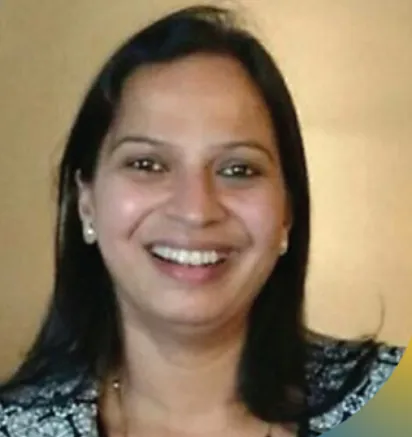
India has made significant strides in its mission to eliminate vaccine-preventable diseases, positioning itself on a promising path toward achieving healthier communities. Through comprehensive and robust immunisation programmes, the country has been unwaveringly dedicated to mitigating the burden of preventable illnesses, striving to provide accessible and equitable healthcare for all its citizens. From 1990 to 2020, the mortality rate among under-five-year-olds in India decreased significantly, from 126 per 1,000 live births to 32 per 1,000 live births. Furthermore, the coverage of full immunisation among children aged 12–23 months has increased from 62 percent in 2015–16 to 76 percent in 2019–20. Key achievements include India's successful eradication of polio, a significant milestone reached in 2014 that exemplifies the country's commitment to global health goals.
The collaborative efforts of governmental agencies, non-governmental organisations, and international partners played a pivotal role in overcoming obstacles and ensuring nationwide polio immunisation campaigns were successfully executed.
The integration of vaccination drives into routine healthcare services and innovations in vaccine delivery mechanisms have contributed to increased immunisation coverage across diverse populations.
Moreover, India has demonstrated commendable progress in combatting measles, rubella, tuberculosis, and hepatitis B, through consistent vaccination initiatives and continuous monitoring of disease outbreaks. The integration of vaccination drives into routine healthcare services and innovations in vaccine delivery mechanisms have contributed to increased immunisation coverage across diverse populations.
However, challenges persist, particularly in reaching remote and marginalised communities, where healthcare accessibility remains limited. Socioeconomic disparities and cultural beliefs sometimes hinder vaccine acceptance, necessitating targeted communication strategies and community engagement to foster trust and dispel misinformation. Looking ahead, India's commitment to vaccine-preventable disease elimination remains steadfast.
Since its launch in India in 2014, the “Intensified Mission Indradhanush” (IMI) vaccination drive has achieved significant immunisation coverage gains across the country. One of the campaign’s key achievements was to identify high-risk and low-vaccination areas. By targeting these specific areas, health authorities could focus their efforts and resources on reaching the most vulnerable communities. IMI’s multi-faceted approach includes strengthening health infrastructure, improving outreach, conducting periodic immunisation drives and increasing community engagement. To overcome the challenge of reaching remote and marginalised communities, the campaign employed innovative strategies like the use of mobile vaccination teams as well as community health workers to deliver vaccines to these areas. The vaccination rounds are conducted at regular intervals to achieve maximum coverage and minimise missed vaccinations.
IMI’s multi-faceted approach includes strengthening health infrastructure, improving outreach, conducting periodic immunisation drives and increasing community engagement.
IMI relies to a large extent on community mobilisation, through various channels of communication, including social and traditional media as well as community meetings. Local communities play a key role in motivating families to get their children vaccinated. Leaders, non-governmental organisations (NGOs), and volunteers are actively involved in promoting the campaign and encouraging people to take part. In some areas, vaccination campaigns are carried out door-to-door to ensure that no child remains unvaccinated. Healthcare workers on the frontlines, such as Accredited Social Health Activists (ASHA), Auxiliary Nurse-Midwives (ANMs), and others, play a crucial role in ensuring vaccines reach the community.
Rapid and successful vaccination initiatives were required to tackle the coronavirus due to its widespread effects. India was one of the first nations to respond, and it did so quite successfully. This immunisation programme not only protected people from COVID-19, but it also significantly improved public opinions and attitudes towards vaccinations. People were increasingly aware of the benefits of vaccinations and their function in avoiding infectious illnesses as the vaccination campaign gained traction. The COVID-19 vaccination campaign was a success, which has allowed for increased immunisation coverage, especially among at-risk groups, and for the eradication of certain vaccine-preventable diseases like polio, measles, and hepatitis B. India is now in a position to strengthen its efforts to fight against vaccine-preventable diseases like measles and rubella (MR) with a renewed focus on immunisation.
People were increasingly aware of the benefits of vaccinations and their function in avoiding infectious illnesses as the vaccination campaign gained traction.
The heightened awareness regarding vaccine benefits has fostered a positive outlook towards immunisation among the population. By dispelling misconceptions and addressing vaccine hesitancy, India has witnessed increased acceptance and participation in vaccination campaigns. Furthermore, the nation's dedication to improving vaccine accessibility and delivery mechanisms has been instrumental in reaching remote and underserved communities. This inclusivity ensures that no child is left unvaccinated and strengthens India's resolve to eliminate diseases like MR.
A catch-up vaccination programme, IMI 5.0 is being implemented for pregnant women and children under five years old who were either excluded from or discontinued from normal immunisation programmes. In August, September, and October of 2023, three IMI 5.0 rounds were conducted throughout all districts of the nation, with a particular emphasis on the “Measles Rubella Elimination” target. Roadmap to Measles and Rubella Elimination is being implemented in all districts, with a focus on high-risk districts, and routine immunisation efforts have been stepped up. By sustaining this momentum and building on the success achieved during the pandemic, India is poised to achieve remarkable milestones in its mission to eradicate vaccine-preventable diseases. The concerted efforts towards raising vaccine awareness and reaching vulnerable populations bring hope for a future where the burden of preventable diseases, including MR, becomes a thing of the past. The combined advocacy and outreach initiatives by government agencies, healthcare workers, community leaders, and civil society organisations have effectively disseminated accurate information about vaccines, creating a well-informed and supportive environment for vaccination programmes.
Shoba Suri is a Senior Fellow with the Observer Research Foundation
The views expressed above belong to the author(s). ORF research and analyses now available on Telegram! Click here to access our curated content — blogs, longforms and interviews.




 PREV
PREV


